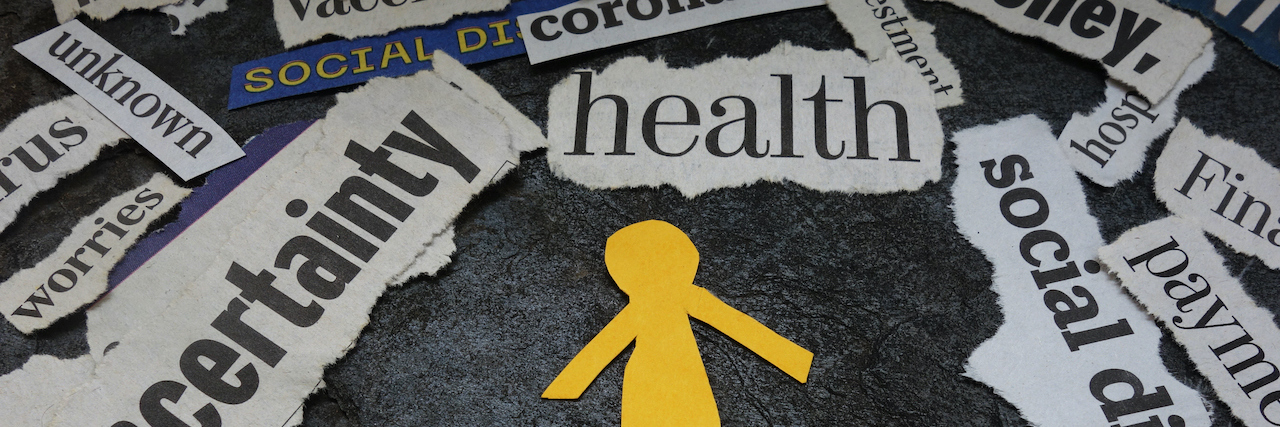Why Italian Medical Authorities Are Calling COVID-19 a 'Syndemic'
“Syndemic” derives from the Greek συν (together) and δήμος (people), with “νόσημα” meaning (pathology). A syndemic is in fact the presence of two or more coactive pathologies interacting negatively, the course of each leading to an increased vulnerability.
In the 1990s, Merril Singer, an American medical anthropologist, conceived the term and defined it as, “The concentration and deleterious interaction of two or more diseases or other health conditions in a population, especially as a consequence of social inequity and the unjust exercise of power.” The COVID-19 pandemic therefore not only had a devastating impact on the physical health of Italian citizens and on a country that is constantly in governmental and economic crisis, but also on children, young and old who currently live in an uncertain world, made of perhaps and with few prospects for the future. Back in September, Richard Horton, the editor-in-chief of The Lancet, a distinguished medical journal, was one of the firsts to argue that the spread of the coronavirus is not just a fight against an infectious virus but also a set of social, economic and environmental generating heavy repercussions on the world population.
During the XXII national congress of the Italian Society of Neuropsicopharmacology, other data emerged which confirm the increase in cases of mental health problems. We therefore speak of a real syndemia; not only repercussions on physical health but emotional, family, cultural, economic and mental repercussions.
Claudio Mencacci, co-president of the Italian Society of Neuropsicopharmacology and director of the Neuroscience and Mental Health Department Asst Fatebenefratelli-Sacco in Milan explains that, “The health, economic and social conditions that have arisen following the COVID-19 pandemic have led to a true syndemic: the disease connected to the virus has an enormous impact on the mental well-being of the entire population, both of those who have come into contact with the virus directly, and of those who have not been infected but live on their skin consequences of the current crisis ”
During phase 1 of the pandemic, multiple medical sources reported that during epidemic events, the risk of developing anxiety disorders, depression, self- and aggressive behaviors towards others are higher. In fact, recent research and studies have reported an increase in depressive episodes, sleep disturbances and anxiety not only on healthcare workers and people who contracted COVID-19 but also on the rest of the population. Scientific Reports Nature Research conducted a research to understand the impact of the lockdown on mental health by giving 6700 individuals a questionnaire that assesses mood and feelings. The results obtained show an increase in depressive cases in women, young adults, people with a lower economic status and people with job uncertainties. The area of residence did not have a greater impact but a high rate was also found in individuals who live alone, individuals who cannot leave the house to go to work and people with family members affected by COVID-19.
In Italy the deaths are over 105,000, which means many more are experiencing grief and depression within a year. Furthermore, the economic crisis caused by the pandemic has negatively affected the mental health of the population; the risk of depression doubles for those with an income of less than 15,000 euros and triples for the unemployed. Half of individuals with COVID-19 experienced psychiatric disorders with a 42% incidence of anxiety or insomnia, 28% of post-traumatic stress disorder, and 20% of obsessive compulsive disorder. Menacci suggests aiming to strengthen services and to stay as close as possible to citizens.
These worrying figures are not far from home; in the United Kingdom, the Mental Health Foundation reported an increase of emotional and mental wellbeing struggles. In December; 54% of the adult U.K. population felt anxious or worried. Over 60% of these were women, full time students, unemployed and 69% were those with a pre-existing mental health condition. Moreover, half of the adult U.K. population reported being worried about the uncertainty of the pandemic. Over half of U.K. adults think that their future will be worse because of the pandemic and 73% of students have the same thought.
The Mental Health Foundation also states that, “Groups affected by socioeconomic inequalities have been more likely to experience anxiety, panic — in certain disadvantaged groups there are even higher proportions of people with suicidal thoughts and feelings.”
The COVID-19 pandemic and the many lockdowns have affected greatly the economy outlining the differences in our society and that is why the Mental Health Foundation among other institutions and charities suggests an holistic approach which addresses not only the mental health problem but the social, systemic and structural inequalities.
Getty image via zimmytws

